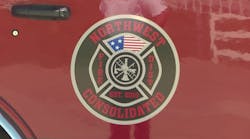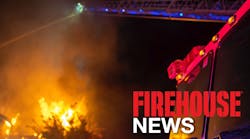Firefighters just put the wet stuff on the red stuff. The cops are the ones that need a formal education. Unfortunately, this is still the way that some people think. Fortunately, it seems that the negative attitude of these misinformed people may be changing.
In Massachusetts, for example, there are civil service and non-civil service fire departments. In the civil service system, applicants take a state-administered test and list the cities or towns where they would like to work. The test is given and you are ranked in order of your score. You get extra points if you are a survivor of a firefighter who died or was severely injured in the line of duty, if you are a military veteran of a war, and if you are an EMT or paramedic. Education does not help you at this entry level.
The state also conducts the civil service promotional exams; this is where you get test points for having a fire science degree. The scenario is slightly different with non-civil service fire departments. Non-civil service fire departments run the hiring process themselves or hire outside companies, education becomes very important in your marketability when applying in this process.
Many career fire departments provide educational incentives for degrees in fire science. In Massachusetts, they range from $250 to 5% for an associate's degree, $500 to 6% for a bachelor's degree, and $1,000 to 10% or more for a post-graduate degree.
Because of my commitment to education in the fire service, I was approached with an offer to teach at the college level at a small Catholic college, Anna Maria College, in Paxton, MA. Anna Maria College is known for its course concentrations in the public safety field: criminal justice, emergency management, nursing and a program that was growing by the day, fire science. The goal of the fire science program is to produce a well-rounded and experienced fire service professional who has the necessary foundation knowledge, training, and certifications to have a competitive edge in obtaining professional fire service employment. Anna Maria College offers a full- and part-time bachelor's degree programs and a part-time graduate program.
The full-time bachelor of science in fire science curriculum is designed for students interested in pursuing careers in fields related to firefighting, fire prevention and fire protection. The program integrates liberal arts education and career preparation and reflects the knowledge, skills and abilities outlined in the National Fire Protection Association (NFPA) standards as well as the Model Curriculum set forth by the Fire and Emergency Service Higher Education Program (FESHE).
Emphasis is placed on the dynamic aspect of public-sector fire service leadership and administration. Students are required to complete a 120-credit curriculum. Within the 120 credits are 36 credits directly contributed to the fire science core curriculum. In years one and two, students take six lower-level core courses: Fire Behavior & Combustion, Fundamentals of Fire Protection, Fundamentals of Fire Prevention, Fire Protection Hydraulics and Water Supply, Fire Protection Systems, and Building Construction for Fire Protection. These courses prepare the student for six upper-level electives that range from Principles of Public Sector Management to Advanced Arson Investigation. In addition, students take classes in leadership, researching the social world, and applied statistics and quantitative analysis to enhance their understanding of the major.
Full-time students are mostly high school graduates who come from across the country to try to better themselves with advanced knowledge of the fire service as well as increase their marketability for future employment in the fire service. The greatest numbers of students are enrolled in the Division of Professional Studies (DPS) fire science bachelor degree program. The division integrates liberal arts education and career preparation to develop a well-rounded fire-service professional. These students are working firefighters who have come to the conclusion that education is a must in today's fire service. There are many reasons why these firefighters have come to this reality: promotional opportunity, educational incentive and even to gain knowledge. If you are an aspiring chief, you will see that most, if not all, chief jobs advertised require a minimum of an associate's degree.
The demand for a part-time fire science degree is steadily increasing. As a result, the college has added three off-site campuses in Massachusetts, all at fire departments, in Westwood, Boxboro and Centerville/Osterville.
Students enter the DPS fire science program already having an associate's degree or equivalent and must complete six courses: Principles of Public Sector Management, Fire Science Law, Regulations, Liability, and Ethics, Contemporary Issues in the Fire Service, Incident Command and Emergency Planning, Fire Service Personnel Administration and Collective Bargaining, and Fire Service Interpersonal Dynamics and Communications. Each student must also complete two fire science electives and other required classes.
Anna Maria College is one of only six colleges in the U.S. offering a master's degree in fire science. Here you will find chief officers and aspiring chief officers engaging in education, networking and sharing ideas. The master of arts degree in fire science and administration is designed to develop excellence and prepare a fire service professional for advancement to the upper ranks of a municipal fire service organization. Most of the master's-level students are employed in the fire service.
Students who enter the School of Graduate Studies fire science program must possess a bachelor's degree in fire science or a related field with a minimum overall grade point average of 2.7. Employment in the fire service may be considered in lieu of a fire science undergraduate major. Graduate students must complete 15 courses with an overall grade point average of 3.0. Students in the master's program must complete seven core courses: Ethical Theory, Organizational Theory and Behavior, Essentials of Emergency Management, Command and Control of Significant Events, Fire Service Strategic Planning and Risk Analysis, Fire Service Communication and Technology, and Leadership of Change within the Fire Service.
Students in the master's program must also complete six graduate fire science or related electives. The electives range from Managerial Finance to Fire Service Utilization of the Internet. All graduate-level fire science students also must complete a six-credit Graduate Thesis course.
Joseph P. Guarnera, M.Ed., is director/professor of Fire Science Programs (graduate and undergraduate) at Anna Maria College in Paxton, MA, and a firefighter with the Revere, MA, Fire Department. He also is a coordinator/instructor at the Massachusetts Firefighting Academy, a member of the Massachusetts Institute of Fire Department Instructors, and is certified as a Basic Fire Investigator, Firefighter I and II, Fire Officer, Fire Instructor and Hazardous Materials Technician. Guarnera holds a master of arts degree in education and a bachelor of science degree in criminal justice from the University of Massachusetts in Boston, and associate of science degrees in fire science from North Shore Community College and criminal justice from Bunkerhill Community College. He may be contacted at Anna Maria College, 50 Sunset Lane, Paxton, MA 01612-1198 or by telephone at 508-849-3200 or 508-849-3744.





